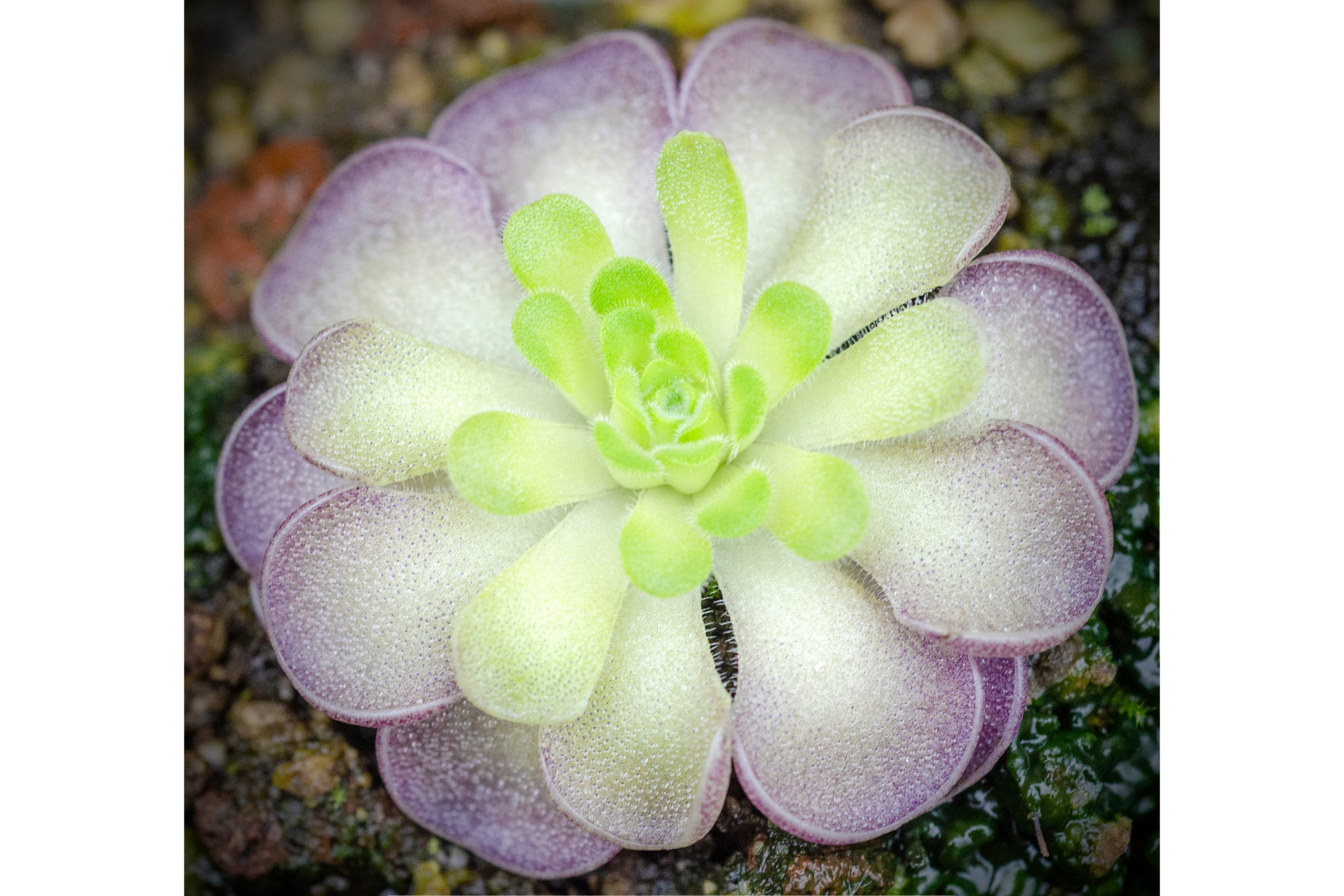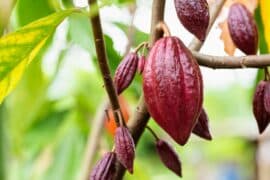Pinguicula cyclosecta
(Pinguicula cyclosecta)

Description
Pinguicula cyclosecta is a perennial rosette-forming insectivorous plant native to the state of Nuevo León in Mexico. The plants form small rosettes of leaves. During the summer months, the plant produces leaves that are covered in glandular hairs on their upper surface. These leaves are capable of catching, killing, and digesting small insect prey for the plant. The edges of the leaves may be tinged a bluish-purple, and in bright light, the entire leaf may be this color. During the winter months, the plant loses its carnivorous leaves and produces a rosette of reduced succulent leaves instead. Deep purple flowers are produced singly at the end of short scapes. Pinguicula, commonly known as the butterworts, is a genus of carnivorous flowering plants in the family Lentibulariaceae. They use sticky, glandular leaves to lure, trap, and digest insects in order to supplement the poor mineral nutrition they obtain from the environment. Of the roughly 80 currently known species, 13 are native to Europe, 9 to North America, and some to northern Asia. The largest number of species is in South and Central America. The name Pinguicula is derived from a term coined by Conrad Gesner, who in his 1561 work entitled Horti Germaniae commented on the glistening leaves: "propter pinguia et tenera folia…" (Latin pinguis, "fat"). The common name "butterwort" reflects this characteristic. The majority of Pinguicula are perennial plants. The only known annuals are P. sharpii, P. takakii, P. crenatiloba, and P. pumila. All species form stemless rosettes. Butterworts can be divided roughly into two main groups based on the climate in which they grow; each group is then further subdivided based on morphological characteristics. Although these groups are not cladistically supported by genetic studies, these groupings are nonetheless convenient for horticultural purposes.
Taxonomic tree:







